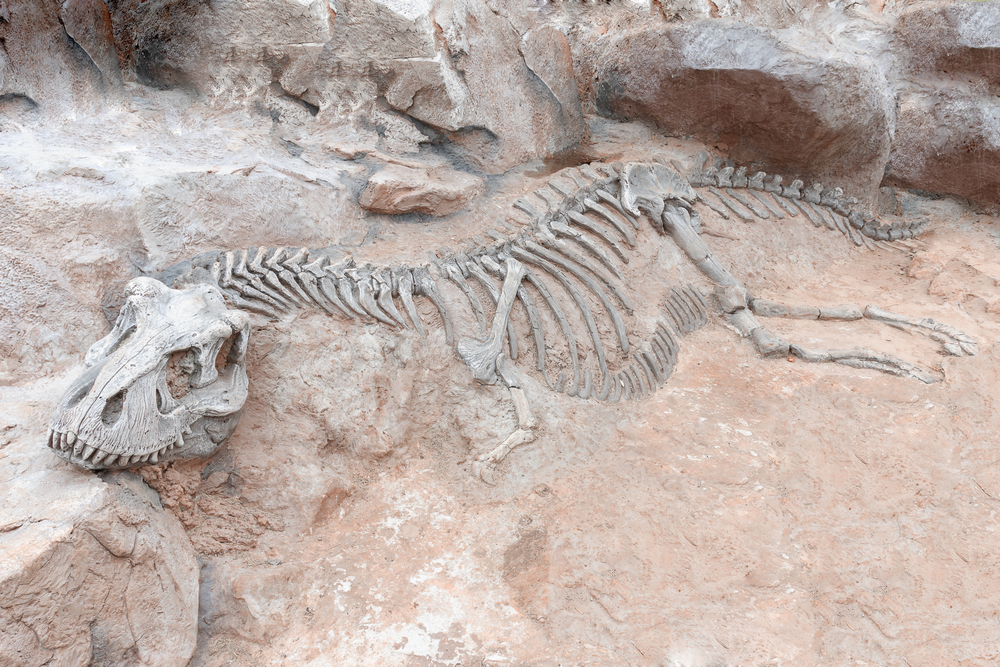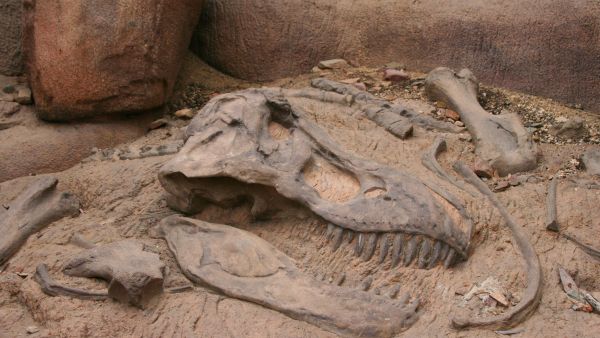ALBAWAA - In an exciting discovery, fossils of the dinosaur "Abelisaurus" have been discovered in Morocco, and they are shedding light on the lives of dinosaurs during the Cretaceous period, which spanned from 145 to 66 million years ago, as reported by Morocco World News.
These ancient findings were located in seabed remnants and are believed to date back all the way to the final million years of the dinosaurs' existence. The discovery shows us a small insight into a time when a significant part of Africa was submerged under vast oceans.
Alongside fish bones, scales, shark teeth, and marine reptiles, paleontologists discovered fossilized remains of land-dwelling dinosaurs. Nicholas Longrich, a specialist in paleontology and evolutionary biology from the University of Bath, expressed curiosity regarding how these fossils ended up down on the ocean floor.

(Shutterstock)
He speculated that some dinosaurs might have swum to islands in search of food, while others could have perished due to natural causes.
Researchers studying the seabed and dinosaur fossils pieced together a profile of the African terrain during the dinosaurs' last days.
The fossil records reveal a diverse array of species ranging from gigantic "titanosaur sauropods" to elephantine herbivores, including the predator Chenanisaurus, a 10-meter-long carnivore from the abelisauridae family with very distinct features.
The discovery led Longrich to assume that the previous decrease in dinosaur diversity observed in North America might have been region-specific, rather than a global trend.
By observing the African dinosaur fossils that thrived at lower latitudes, experts suggest that the sudden extinction of dinosaurs contradicts gradual decline theories, proposing that these creatures faced an abrupt and untimely demise in their evolutionary prime.









